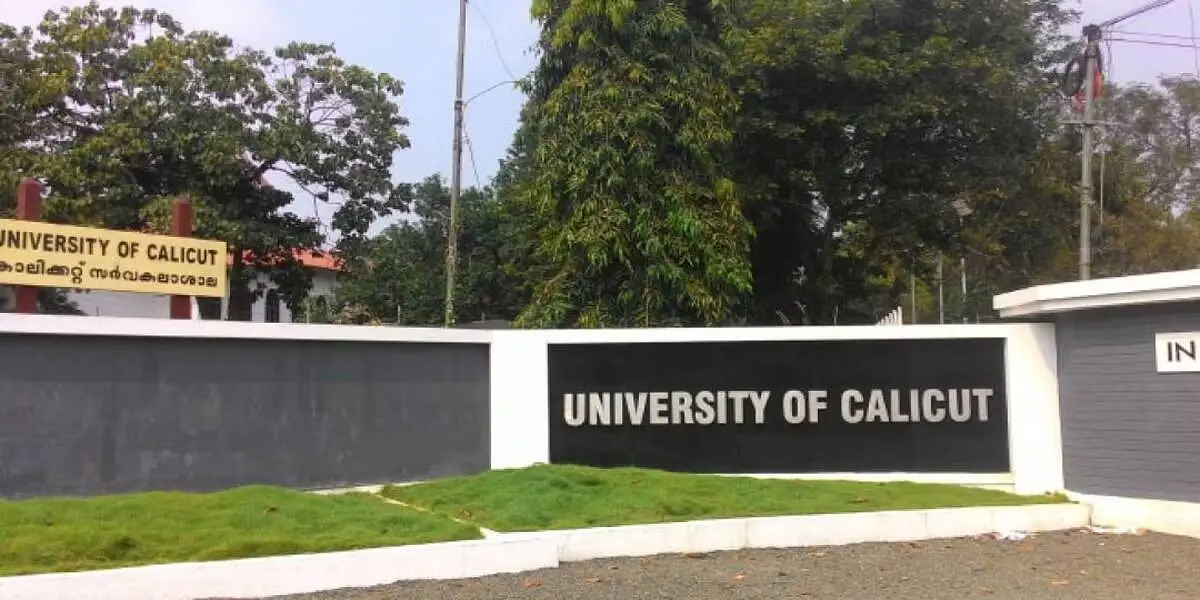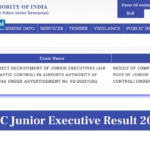In the landscape of Indian higher education, Calicut University holds a unique place. Established in 1968, it was the second university to be set up in Kerala, envisioned as a center for advancing knowledge, research, and innovation. Over the years, it has transformed into one of South India’s largest universities, catering to lakhs of students across disciplines. From arts and humanities to science, commerce, management, and technology, the institution has become a preferred destination for learners seeking quality education blended with cultural richness.
A Brief History of Calicut University
The university was born out of a need to provide quality higher education to the northern districts of Kerala. With headquarters located in Thenhipalam, Malappuram district, it was carved out of Kerala University to meet the growing academic demands of the region. Since its inception, it has steadily expanded its reach, affiliating numerous colleges and introducing programs that cover almost every academic discipline.
Its early years were focused on laying down strong foundations—setting up departments, building infrastructure, and affiliating colleges. Today, it has evolved into a comprehensive university that represents both tradition and modernity, reflecting Kerala’s educational ethos.
Calicut University Academic Structure
One of the strongest aspects of this institution is its academic diversity. It houses more than 30 teaching departments and hundreds of affiliated colleges spread across northern Kerala. These cover streams such as:
- Arts and Humanities – Literature, languages, history, philosophy, and more.
- Science – Mathematics, physics, chemistry, life sciences, and computer science.
- Commerce and Management – B.Com, MBA, and other business-focused programs.
- Professional Courses – Education, law, journalism, and social work.
In addition, the university has made great strides in research-oriented programs, offering M.Phil. and Ph.D. opportunities in several disciplines. The curriculum is regularly updated to align with the National Education Policy (NEP) framework, ensuring that students receive not just academic training but also exposure to emerging skill sets.
Distance and Online Education
Calicut University, Another remarkable feature of this institution is its School of Distance Education (SDE), which was one of the earliest such initiatives in Kerala. Catering to thousands of students who cannot attend regular classes, the SDE has been instrumental in democratizing access to education.
With the rise of digital platforms, the university has been integrating online learning tools, virtual classrooms, and e-resources to make education more inclusive and flexible. This has been a game-changer, particularly for working professionals, homemakers, and students from remote areas.
Admission Process
Calicut University, Entry into the various programs is merit-based for most undergraduate courses, while postgraduate and professional degrees often require entrance tests. For example:
- Undergraduate admissions are usually based on marks secured in higher secondary examinations.
- Postgraduate courses often involve university-level entrance exams.
- Professional programs like MBA consider scores from national or state-level tests, along with group discussions and interviews.
The Centralized Admission Process (CAP) ensures transparency and efficiency, allowing students to apply online for multiple programs and colleges under the university umbrella. This digital-friendly approach has greatly streamlined the process in recent years.
Research and Innovation
Calicut University, While teaching remains central, the university has been increasingly emphasizing research. Departments have initiated projects funded by national bodies like UGC, CSIR, and DST, covering diverse areas from nanoscience to linguistics.
The institution encourages collaboration with industries and international universities, fostering an environment where students and faculty can contribute to real-world problem-solving. Annual seminars, workshops, and conferences give young researchers the chance to showcase their work and connect with the global academic community.
Campus and Facilities
The main campus of Calicut University , spread over 500 acres in Thenhipalam, offers a serene environment for learning. Facilities include:
- A central library with a vast collection of books and e-resources.
- Well-equipped laboratories for science and technology disciplines.
- Hostels for men and women, ensuring comfortable accommodation.
- Sports complexes and grounds that promote extracurricular involvement.
- Cultural centers that reflect Kerala’s rich traditions.
The campus strikes a balance between academics and recreation, making it a lively space where students can grow holistically.
Student Life
Life at the Calicut University, goes beyond classrooms. Students participate actively in:
- Arts festivals and cultural events showcasing Kerala’s vibrant traditions.
- Sports competitions at state and national levels, with the institution being a strong contender in inter-university championships.
- Student unions and clubs that focus on social, literary, and technical interests.
This makes campus life vibrant and engaging, preparing students not just academically but also socially and emotionally.
Role in Kerala’s Educational Ecosystem
As one of Kerala’s largest universities, it plays a pivotal role in shaping the state’s education system. With over 400 affiliated colleges across Malappuram, Kozhikode, Wayanad, Palakkad, and Thrissur districts, it has become the backbone of higher education in northern Kerala.
By offering a wide range of academic programs and fostering inclusivity, the Calicut University, has contributed significantly to improving literacy, employability, and research culture in the region.
Alumni Achievements
Over the decades, the Calicut University, has produced a vast network of alumni who have excelled in diverse fields. From bureaucrats and entrepreneurs to writers, scientists, and cultural icons, its graduates have left their mark not only in Kerala but across the globe.
This strong alumni presence has also fostered mentorship and networking opportunities for current students, creating a cycle of growth and inspiration.
Challenges and Opportunities
Despite its achievements, the Calicut University faces challenges:
- Infrastructure Upgradation – With the growing number of students, classrooms, hostels, and laboratories require modernization.
- Global Recognition – While the institution has a strong regional impact, it is yet to establish itself in global university rankings.
- Balancing Tradition and Modernity – Kerala’s educational system is rooted in cultural traditions, but aligning them with modern, skill-based learning remains an ongoing task.
On the flip side, the future presents opportunities. The National Education Policy, focus on skill-based education, and increased government funding for research can help the university strengthen its global presence. By adopting more international collaborations and digital learning tools, it can easily rise to the next level.
Why Students Choose This University
Several factors make University a preferred choice:
- Wide Academic Options – From literature to biotechnology, the breadth of programs is unmatched.
- Affordable Education – Compared to private universities, it offers high-quality education at affordable fees.
- Cultural Enrichment – Students experience Kerala’s traditions, language, and art forms.
- Community Impact – The university contributes to the overall development of northern Kerala, instilling a sense of pride among students.
Conclusion
For over five decades, Calicut University has been more than just an educational institution—it has been a catalyst for transformation in Kerala’s academic and cultural landscape. By combining diverse academic programs, strong research foundations, vibrant campus life, and a commitment to inclusivity, it has established itself as a true hub of learning.
As it continues to evolve with the changing times, its role in shaping not only Kerala’s future but also contributing to India’s larger educational ambitions will remain crucial. For students seeking quality, affordability, and cultural richness, this institution remains one of the best choices in South India.










